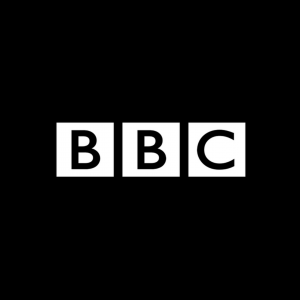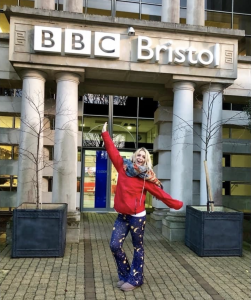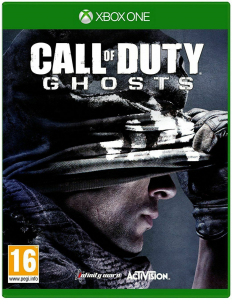Interview with a Media Professional
by Victoria Harrison, Design Enterprise Studio Member, March 2021
 “I’m Molly. I’ve been in the media industry from 19 years old with a three year media production degree gap at 21years. I worked in corporate and private media industries until 2014 when I got a job with the BBC News. Triumphing various roles within the BBC from NTA, Series Producer, Floor Manager, to my current role: camera operator and video editor.
“I’m Molly. I’ve been in the media industry from 19 years old with a three year media production degree gap at 21years. I worked in corporate and private media industries until 2014 when I got a job with the BBC News. Triumphing various roles within the BBC from NTA, Series Producer, Floor Manager, to my current role: camera operator and video editor.
Camera operator and video editor – please could you say a bit more about what this position entails? What software and soft skills are required and how are they implemented?
While growing up what sort of educational background led you towards a media based occupation?
 “From a small girl I was obsessed with photography and composition. I went to college to study Law, English Language & Lit and Psychology and took Photography as my fourth subject – just for fun! Needless to say it totally took over my life andmy wish to become a lawyer dwindled. This was before digital photography really became a thing so we worked on film and developed our own negs and images in the darkroom.
“From a small girl I was obsessed with photography and composition. I went to college to study Law, English Language & Lit and Psychology and took Photography as my fourth subject – just for fun! Needless to say it totally took over my life andmy wish to become a lawyer dwindled. This was before digital photography really became a thing so we worked on film and developed our own negs and images in the darkroom.
After college I worked as a first assistant to a London based fashion photographer, we shot front covers of magazines and stylist collections, I also shot my own portfolio. Alongside my photography, I worked as a runner in a post production house in Soho, London.
Wanting more from life I travelled the world for a bit and when I came home I didn’t know what I wanted to do with my life so I went to uni for the crack of it and managed to boss a first class honours degree in media production! This is when my career really started to take shape.”
Would you say that there are any other particular employment opportunities or inspirations (outside of education) that lead you on to your current media focused career path?
“My main inspiration was my passion to succeed in any way possible doing whatever I loved at the time, I always strived to be the best I could personally be and made sure I shined my light BRIGHT. This attitude always got me the jobs I applied for.
My other main inspiration was my first love, Gus. He worked in the industry too and we shared an incredible passion for life, love and media. He was the reason I studied Media Production at University in which I focused mainly on film and animation. The highlight of his career was working for Disney on films like Pirates of the Caribbean. Unfortunately he is no longer with us.”
What has been the highlight of your career as of yet? And in contrast to this what moment has been the most challenging aspect?
 “The highlight of my career to date was working as a video producer for Activision on the Call of Duty Ghosts campaign and as a film director for a kids game called Skylanders. This is the LIFE, you get paid mega bucks to have the sickest time doing what you love!!
“The highlight of my career to date was working as a video producer for Activision on the Call of Duty Ghosts campaign and as a film director for a kids game called Skylanders. This is the LIFE, you get paid mega bucks to have the sickest time doing what you love!!
The most emotionally challenging job was editing the wish videos for Make a Wish Foundation. This is a foundation that grants terminally ill children their dying wish. I basically sat at my computer crying all day as I pulled together the different aspects of the edits.”
How has the Covid-19 pandemic impacted your life, career or any other media enrolments? Have you got any contingency or mitigation planning?
“Massively. Our entire workflow with the BBC has changed from how we shoot our pieces with contributors safely to how we travel to and from locations to how we edit and record voiceovers from the reporters/ correspondents! The number of employees allowed in the newsroom has gone from about 80 to 5 and we are only allowed one presenter in the studio instead of two. We now only have one live camera op in the studio instead of two or three and the live gallery has had to be split across two rooms to house all the people needed to put the program out. Before the pandemic I was also involved in starting a live streaming company for club nights – which has now been pulled back to studio streaming only as a contingency.”
Some really interesting feedback here, with some exciting contingency planning adapting around the Covid-19’s pandemic. Here at DES we would like to give an extra special thanks to Molly at the BBC and are looking forward to seeing her future steps in both her life and her career.
Molly has very excitingly continued to expect a child! All of us here at DES wish them both all the luck in their future endeavours..
